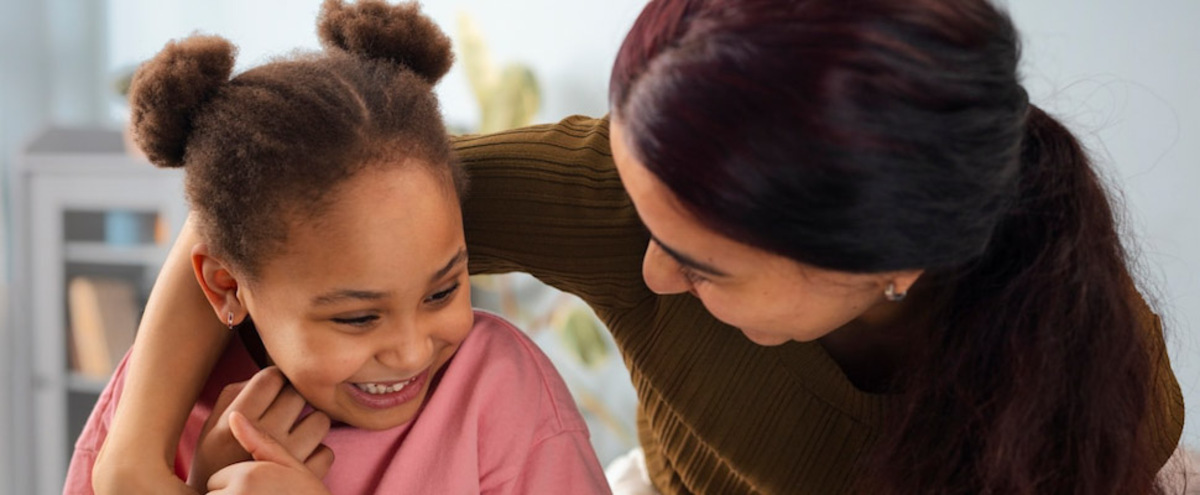The emotional challenges of adopting a child
Usually, adoptive couples or mothers who want to have a child prefer to bring a baby home to raise in their way. However, others want to give a child the home and love that she deserves. According to specialists, some several ideas and questions haunt the mind of an adopted child and that the mother must address throughout her growth.

María Consuelo Caicedo Toro
Listen to this article
What is their origin?
Every human being wants to know where they come from, where their roots lie. Often, children available for adoption believe that they were rejected, and they feel diminished by this idea. For this reason (if the causes of their being alone are known), adoptive mothers must dispel their doubts. Talking to them about their past is healing and contributes to self-acceptance and the reduction of feelings of guilt.
Read more content like this at: thewomanpost.com
Vulnerability
If adoptive parents decide to bring a child or teenager into their home to be part of their family, they should know that there is a high probability that it won't be easy for them to form emotional and affectionate bonds, and they may constantly fear abandonment. Episodes of rebellion may occur, where they try to prove that they don't need anyone to live. Perhaps what they are shouting to the world is their vulnerability and the difficulty of dealing with a range of overwhelming emotions. Understanding what they feel will be the first step towards change. Seeking professional assistance contributes to the stability of the mother and her family.
Habits and discipline
If a child or teenager is in a state institution waiting for a family to take them home, it is likely that they will struggle to adapt to changes in spaces, routines, and habits. They will have formed bonds with their peers, and it won't be easy for them to follow instructions, attend school, do homework, and fulfill tasks at home. In these cases, psychological assistance for both the child and their new parents is effective, as well as patience and demonstrating that they are loved in their new home. Many express rejection towards their new parents because they feel that they are not important enough to be taken into account, and their way of expressing this is by building a barrier behind which they feel protected. Frequently, low self-esteem and manifestations of depression and/or anxiety are present.
Listen to them always
The adopted child or teenager has a life before their new mother. It is healthy to allow them to remember both good and bad experiences, listen to them, and analyze how they express themselves when reliving them. It is advisable not to speak ill of their past or minimize it but to understand that it is inherent to their essence as a human being.
You can also read: Ther arte of learning to be better mother
How to make them happy?
If you, as a mother, have decided to adopt alone or have the support of your partner for this enormous mission, these suggestions will be helpful:
- Your emotional well-being must be balanced. If you have any unresolved issues, seek help from a specialist. Your adopted child will need guidance from mentally and emotionally healthy individuals.
- The child has defined personality traits that will emerge in their interactions. They haven't come to your home to please you or become like you; they are a member of your family, and their individuality must be respected and valued.
- The family should be aware of your decision to adopt, have conversations with everyone, and explain your reasons before bringing the child home. This will help with their acceptance and show them love.
- Don't be overly indulgent with your adopted child. Discipline and adherence to rules are essential for a child to grow up healthy and happy.
Good to know
To prevent any child from being adopted by a family with purposes other than providing them with a home, love, respect, and fulfilling their needs for education, food, shelter, companionship, and support, the Hague Convention on Protection of Children and Co-operation in Respect of Intercountry Adoption was ratified in 1993, with 80 signatory countries. This convention includes some important points:
- If adoption is done internationally, the authorities of the child's country of origin must ensure that the process is carried out under the rules and protections applied in domestic adoptions and that there are no inappropriate financial gains for those involved.
- The priority of a transparent adoption process is the protection of the child, safeguarding the rights of biological parents and ensuring adoptive parents that the child has not been subjected to illicit maneuvers.
- If the child has been separated from their family or community during a war or natural disaster, priority should be given to locating their relatives, and the possibility of international adoption should only be considered when all efforts to find their family have been unsuccessful and there are no stable solutions in the country of origin.




